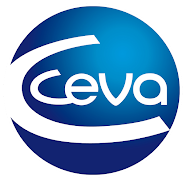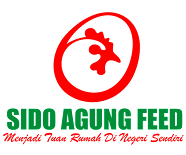kembali ke infovet
Latest Development of AI
Avian Influenza (AI) caused by AI virus in poultry industry considered as strategic disease. Office Internationale des Epizooties (OIE) classified this disease in List A, since AI is zoonotic and technically and economically cause high economic loss. Highly Pathogenic AI, first identified in Central Java in August 2003 and spread to many different parts of country probably through the movement of poultry.
Some 10.5 million chicken were reportedly lost in 2004 due to disease and culling. Vaccination against HPAI was done early in 2004 and continues to use vaccine in infected zones throughout the country.
To coordinate the control of AI, Campaign Management Unit (CMU) within the Ministry of Agriculture was established in 2006, as guidance in controlling the disease in the field, Standard Operation and Procedure (SOP) had been distributed. Establishment of such institutions in regional and provincial level is being prepared in the provinces, Local Disease Control Center (LDCC) is already founded as projects.
According to the data of (CMU) that last development of HPAI was detected in 122 districts of 444 districts in first quarter 2007. Incidence of HPAI varies across the country
- Endemic in Java, Sumatera and South Sulawesi
- Lower incidence in eastern provinces
- Both commercial and village poultry
- Chickens, quails and ducks affected.
The first human cases of AI was reported in June 2005, latest figure shown that 81 fatalities from 102 cases.
Problem of Pig Farming
Problem of pig farming in Indonesia is very complicated, since the difficulties caused by various factors. To study and analyze the problem, National Seminar entitled “Pig Trading, Movement, Problem and Solution”, sponsored by Indonesia Monogastric Association (AMI) in cooperation with GITA Organizer, had been conducted in Solo on June 27th, 2007. The seminar was attended by pig farmers, farm input suppliers, universities, related institutions of local and central government, and associations in Central Java.
According to Hadi Santosa, Head of Indonesia Veterinary Drug Association (ASOHI) Central Java Chapter that the main problem on pig farming is legal aspect, all stakeholders should concern to the certainty for sustainable pig farming.
Similar opinion was also informed by Kusmaningsih MP, Head of Provincial Livestock Services that constrain for development of pig farming in Central Java is social and religion aspects, since majority of population is Moslem will be resistant to the existence of pig farming.
Location of pig farming formerly remote from people housing and in line with increasing population, based on hygienic consideration the people prefer to close pig farming. The other problem was reminded by Rachmawati Siswadi, President of AMI, that serious problem is poor quality of breed, caused by inbreeding. The prospect of pig farming really promises, since Indonesia as FMD country has opportunity to export the products.
Strengthening Dairy Industry
Supply of milk from domestic product is not sufficient to meet the whole demand causing dependency on imported milk is still high. To strengthen dairy industry in Indonesia is not so difficult, since dairy production center are mainly in West Java and East Java.
Strategic effort to increase productivity of dairy cow should be through breed improvement. Max Dowell, genetician of Cornell University in Holstein Seminar in Padjajaran University, Bandung, suggested that the most suitable dairy cattle for tropical country such as Indonesia is 75% pure line Holstein blood and 25% indigenous blood.
The advantage of this hybrid cow is ability adapting to hot climate, high humidity, resistant to insect and parasites. The other superiority is capability in digesting tropical forages contains high fiber and lignin.
Advantage of Sumbawa Horse Milk
Milk of horse in Sumbawa, West Nusa Tenggara Province is characterized by the stability as not broken or in clod without preservatives. According to Dr Diana Hermawati, former Director of Livestock Product Assay Laboratory, this indicated that the milk contain substance which able to hamper development of bacteria.
In her theses entitled “Study on Activity and Characterization of Antimicrobes in Sumbawa Horse Milk”, concluded natural antimicrobe compound having the role to stability of milk.
Guidance and improvement to the local farmers had been provided more than 5 years, in the aspect of sanitation, hygiene and packaging to maintain the quality. Advantage of Sumbawa horse milk compared with dairy and goat milk is lower content of fat, protein and ash and higher content of lactose, water and the presence of Galactoferin as natural antimicrobe.






































0 Comments:
Posting Komentar